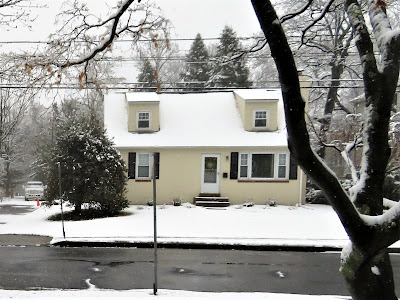Some of us can go a whole lifetime before we find our real calling. And now I realize: thus it has been with me. I've spent most of my life waking up to an alarm and rushing off to school, to work, to drop the kids off at various activities.
Even after I retired there were pressures. For example, I sometimes had to get up, get breakfast, get out of the house, and head over to our local college for a class at our Center for Learning in Retirement. And I had to do it all by 9:25 a.m.!
But wait. It gets worse. From spring through fall, for six months of the year I had to roust myself out of bed as early as 7 a.m. so I could down a cup of coffee, drive to a golf course and find the first tee . . . all while still half asleep.
No longer. Now we're a year into self-isolation. And I think I've discovered my real talent: The Art of Doing Nothing.
I wake up . . . whenever I want. I go to the kitchen for my coffee, and then I look around. What do I have to do?
Nothing. And so I sit and read the paper, or crack open my book. There's no rush. I can read until I get tired of reading, and maybe even take a nap. I never used to take a nap; but now there's no reason not to.
Eventually, I make myself some breakfast. Then it's time to go into my room to stare at the computer for a while. What do I look at? It doesn't matter. I'm only passing the time. Facebook, Twitter, Instagram? The news or sports scores? Read some blogs? Check my email? How long does this take? I dunno. I'm not on any schedule. Haven't been for a year.
I do have a Zoom meeting a couple of times a week. But I can handle a meeting at 10:50 a.m. -- because I don't have to shower and dress ahead of time. Whew!
Sometimes I go out for a walk. My wife walks almost every day, first thing in the morning. I go a couple of times a week, at my own pace . . . my own pace means I get around to it about 4 p.m.
 |
| My one constructive act of the day |
And yet dinner seems to go by so quickly. I think about it all day long, look forward to the meal and some conversation with B. Then, it seems, as soon as we sit down . . . suddenly it's over! Then I do the dishes.
Lately, we've been reading A Short History of Wisconsin aloud to each other after dinner, one chapter at a time. We're planning a trip to Wisconsin in August. Of course, we planned a trip to Wisconsin last summer, and it never happened. I wonder if it will be different this year.
Yes, we've started talking about coming out of our cocoon. We're even considering a trip in May, and beginning to think about what we're going to do for Thanksgiving. We're anxious about getting out of the house after all this time, making plans and talking to people about possibilities.
And yet . . . even when we're fully vaccinated the CDC is still recommending against traveling. Airports, hotels, restaurants are all considered hotspots for the virus. So we wonder, with the vagaries of the vaccine and the possibility of new Covid strains . . . is it even worth it?
Besides, we've become so lazy, even one trip seems like an enormous undertaking.
After dinner and the dishes and reading about Wisconsin, we make the long trek from the dining room to the den -- almost 20 feet -- and plop down in front of the TV. We've already watched a number of shows: Schitt's Creek. Borgen. Episodes. Call My Agent. The Queen's Gambit.
We just saw the movie Manks (overrated) and Laurel Canyon (pretty bad). Now we're watching the Australian series Offspring which we love . . . and we're looking for some others.
But all we do is read, watch TV, putter around the house. We have brought the idea of doing nothing to a high art. Yet we know we are running out of things to do, things to watch. And now that spring is here, we can go outside and work in the yard. Will I be playing golf again? Are we really going to travel? See our children?
It will be a major transition for us. We have over time embraced the lifestyle of doing absolutely nothing. Can we now develop the Art of Doing Something?




